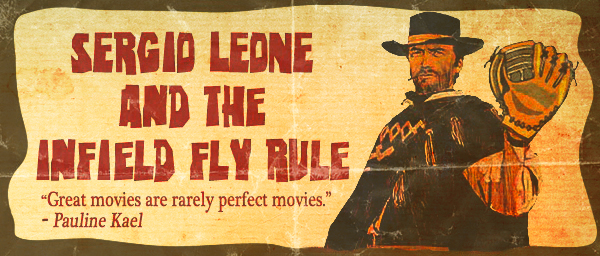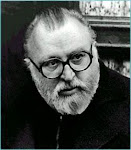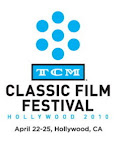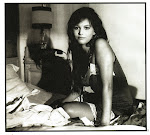WALTER HILL'S THE ASSIGNMENT
Without much due pomp or
circumstance, Walter Hill’s newest movie, The Assignment arrived on home video
this past week. In an age where superheroes and endlessly recycled ideas are
the coin of the realm, when a director like Hill is perceived by studio suits
(if they’re even old enough to remember who he is or what he did) as past his
prime, this delirious noir, a tale of two revenges meted out with methodical
fury and shot through with the director’s usual gritty visual poetry, emerges
as being squarely in the grand tradition of what critic Charles Taylor has dubbed American shadow cinema. (The major difference between the mid ‘70s and now, of
course, is that these days apparently you must seek out those shadows courtesy
of your own home theater, because there’s no room for shadows when every
multiplex screen has been purloined by interstellar shape-shifting robot
vehicles, decrepit pirates and wonder women.)
In The Assignment, Michelle
Rodriguez plays Frank Kitchen, a brutally efficient killer and very hairy macho
man who carries out a hit on the brother of Dr. Rachel Jane, a brilliant
plastic surgeon (Sigourney Weaver). Jane has been drummed out of her profession
and forced to go underground, where she performs radical experiments on
unwilling patients/victims supplied to her by a local mobster. Seething with
the need to avenge her brother and assert her superior vocational mastery, Jane
arranges to have Kitchen kidnapped and delivered to her operating theater,
where she exacts a very particular brand of baroque vengeance, surgically
transforming the macho killer into a woman. Right away The Assignment insists upon its position not as a serious
undertaking of gender reassignment experience, but instead as a somewhat rococo
pulp riff on the question of whether gender determines identity. Those
predisposed toward offense should probably seek out some other violent thriller
featuring a brutal, amoral protagonist who switches sexes and carries out a
meticulous campaign of revenge.
Rodriguez, a punchy, independent presence from her Girlfight get-go, routinely traffics in
roles which emphasize feminine allure gilded with a more traditionally
masculine toughness, and she delivers a confident, convincing performance,
effortlessly reminding us that the murderous instincts within won't be quelled
by the inconvenience of unexpected gender reassignment. (In her male
incarnation, decked out with a beard, chest hair, a somewhat bulbous nose and a
ponytail, she resembles a slightly feminized Oscar Isaac.) Hill has a grand
time in this section of the movie: in an early scene when the pre-surgery
Kitchen emerges from a shower, Rodriguez and her director conspire to goose
their audience's expectations of the sort of demure sleight-of-hand camera
placement which would normally be orchestrated to keep Rodriguez’s sex under
wraps, and the big reveal is comic showmanship of a high order. One can imagine
Neil Jordan and Jaye Davidson standing up and applauding.
The manner in which the strings of the plot are drawn in
tight, as Kitchen and Jane find their way to each other once again, through
darkened hallways, rain-slickened streets and a tangle of clever,
comics-inspired chronological juggling, is orchestrated with sardonic glee by
Hill, who seems energized by the movie’s outlandish premise, and maybe also by
the opportunity to once again get his hands around the process of making a
feature—watching The Assignment, one
of the things you sense most of all is how much fun Hill seems to have had
making it. The movie, acutely aware of its outrageousness, revels in Hill’s
mastery of neo-noir atmosphere, but it’s also brilliantly sustained in its
unwillingness to take matters too far over the top into mindless grotesquerie.
This principle is best embodied by Weaver’s perfectly modulated performance.
The actress, never one to surrender too quickly to histrionics, manages to find
a delicious way of hitting the rafters by underplaying
Jane’s sinister, insistently academic vibe, especially in the scenes where
she’s interviewed by the condescending doctor on staff (Tony Shaloub) at the
asylum where she’s been committed. Like Hannibal Lecter sans appetite, she
loves the game of condescending to her interrogator’s inferior intellect and
second-rate analytical acumen by quoting Shakespeare and pointedly evoking Poe.
(She quotes Poe’s “Philosophy of Composition” as a means of justifying her
sense of being above contemporary morality; he knows only the Vincent Price
movies.) And Hill evokes the American master as well— early on, Jane leaves a
picture of Kitchen from his previous life as a man for him/her to discover
after she wakes up from the reassignment surgery, along with a note attached that
reads, “Nevermore! Nevermore!”
But perhaps the niftiest
thing about The Assignment,
especially for those who have followed Hill’s career from his early days as a
screenwriter (Sam Peckinpah’s The Getaway)
through his own run of distinguished action cinema, as a writer-director of
works like Hard Times, The Driver, The
Warriors, The Long Riders, Southern Comfort and Trespass, is the vigor and style that still courses through his
movies. This new one is surely not an example of top-tier Hill, but it’s great
fun and it represents the sort of clean, determined action-movie aesthetic
always championed by the director that seems to have been abandoned in the age
of corporate cookie-cutter blockbusters. (Just put a late-period entry like
this one up against something like Brian De Palma’s Passion and see if you can’t gauge the difference between the two
directors’ comparative level of engagement.) In an interview with Hill in Film Comment earlier this year,
critic Michael Sragow nailed The Assignment’s appeal when he
described it as being “in the great tradition of uninhibited storytelling, from
Edgar Allan Poe to EC Comics." The movie fulfills that juicy description
and then some, and it suggests that, the unwillingness of financial backers
notwithstanding, the greatest, headiest days of Walter Hill’s career are hardly
locked down in past achievements. At 75 years, Hill’s still got it.
********************************
********************************























No comments:
Post a Comment